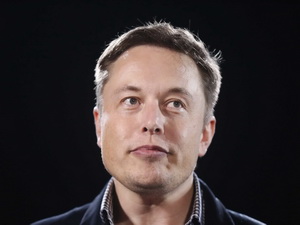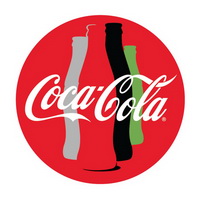Fashion, Passion and Decision making interplay are well described in the following story:
There were many in Wall Street, years ago, who viewed a particular company with extreme skepticism. I worked then for Forbes magazine and we were among the doubters.
Our rationale was sound. The company’s product categories were seeing a decline in revenue. It cut deals with a handful of companies that would go out of business.
Even after of the dot-com bust, its stock was overvalued by traditional measures. And most telling of all, it’s founder and CEO was so insistent on ploughing every spare penny back into the business, that the company made no money.
The name of the company was Amazon and the CEO Jeff Bezos.
JOE NOCERA
Washington Post, August 2017
It is well documented that Companies at a certain nodal point of their existence, take bold decisions, affecting decisively their fortunes.
A considerable time later, those Companies which succeed, have their decisions examined and analyzed by legions of Academics, Consultants, and all types of specialists or generalists. They are all looking for their special secret.
A consensus and verdict, eventually, emerges on the reasons of their success.
Ergo, every other Company has then to follow the agreed upon strategy, reason, method, technique, model to achieve the same outstanding outcome.
Leaders of Companies recognize the merits of the Trail Blazers’ strategy and start a discussion within their Companies, on its worth. This cascades down to the lower echelons of the organization. Since the interest was generated by the boss, executives start to examine, uncritically, this strategy, willing to adopt it.
This is reinforced by relevant articles, relevant or irrelevant Gurus, Consultants, Academics and books. The topic soon becomes popular in the Company’s discussions, meetings and debates. Thus, a fashion is created which is self-feeding. Every item in the Company agenda is also examined under that prism. Another name for fashion is “common knowledge”. The problem with common knowledge is that is considered a “fact”. As Sherlock Holmes remarked: “There is nothing more deceptive than an obvious fact“. We should understand that “facts” have biases.
Fintech, Digitization, AI are cases in point.
Decision making is not necessarily rational. The following is borrowed from Nick Romeo’s article, “Platonically Irrational”:
“Plato depicts people believing what they want or what they are predisposed to believe (confirmation bias); asserting whatever comes most readily to mind (availability bias); reversing their opinions about identical propositions based on the language in which the propositions are presented (framing); refusing to relinquish current opinions simply because these happen to be the opinions they currently possess (a cognitive version of loss aversion); making false inferences based on the size and sample representation of a broader population (representativeness heuristic); and judging new information based on salient current information (a version of anchoring). And this is only a partial inventory of the mental errors that he catalogues and dramatizes”.
Those traits are found in most executive’s meetings.
Every correct strategic decision, further to its rationality, is similar to a surfer riding a wave. The surfer chooses the wave and if the surfer is good and the wave is long lasting, the surfer will happily surf for a long time.
The first thing to note is that the wave is a function of time, among other conditions.
Whoever imitates the first surfer, has first to understand why and how the successful surfer chooses the wave. The second question is to decide, if riding the same wave sometime later, offers the same probability of success.
What is transpired is that success is a function of passion, not fashion.
Vision, technology, organization and all other relevant virtues are needed, but are not enough to ensure success, if the passion, to see it through, is not there.
For every one that succeeded using the same approach, others failed usually because they gave up prematurely.
It is not a question of choice of direction. It is a question of sustainability of effort, in the pursuance of an elusive target through the vicissitudes of time and space.
We admire now Jeff Bezos and Elon Musk for their success and their wealth. We attribute it on their correct choices to use available cutting-edge technologies and become very rich. We fail to see that they are in essence passion driven individuals.
 Amazon succeeded because it was and is an act of faith.
Amazon succeeded because it was and is an act of faith.
A comparison between Amazon and Walmart valuations, i.e. a comparison between an e-commerce & a brick & mortar retailer proves it:
Amazon has an outlandish P/E of 182.6, while Walmart has an impressive 16.6.
Amazon has a forward P/E of 71.7 while Walmart has a 16.0.
Amazon has an EV/EBITDA of 36.2 while Walmart has a 7.0.
Walmart last year had sales of about 481 billion dollars, while Amazon reached 135 billion dollars of sales.
Walmart has a matchless power over its suppliers and broadness of its offered items, Amazon has, expertise based, dominance, on focused e-commerce operations.
It is a reasonable question to ask why investors buy Amazon instead of putting all their money in Walmart? Why Amazon is on the way to become the first Company whose stock is expected to be worth a trillion dollars?
Walmart with its over 11,000 retail stores worldwide, has the strongest retail presence, but Amazon has the strongest e-commerce market share with 38% of all e-commerce sales in the US while Walmart has only 2.6%.
 There lies the explanation.
There lies the explanation.
While both Corporations are very well managed with great financial metrics, Amazon is leading the future, while Walmart, which took off 30 years earlier than Amazon, is leading the present.
To be fair, Walmart is moving fast towards e-commerce, accepting that brick and mortar retail is fading.
The decision-making process.
The secret is in the decision-making process. The important thing is to understand WHY Jeff Bezos and Elon Musk succeeded, not HOW they did it.
Most Companies & Corporations are run in an empirical manner that is based on observation or experience rather than theory or pure logic.
With Jeff Bezos his decision-making logic is based on two axioms.
The first is that, business decisions cannot be based 100% on available data as simply, less than 100% of data is available, at the time a decision needs to be taken. So instead a decision is taken rapidly, on the basis of about 70% data based consensus. In turn, high Company flexibility is used to modify/correct the decision, as required by emerging and/or unforeseen circumstances.
The second is more complex. It accepts that any decision taken within a specific business environment, changes the environment itself. It follows that, a finely timed critical decision, may change the rules of this business environment. This is the principle of interaction. In business, while the moment of introduction is vitally important, it rarely brings instant change.
This characteristic of a critical decision as a game changer, is linked to creativity and originality, but those virtues are not enough.
Strategic targeting fixation must be seamlessly linked with tactical directional flexibility  and a certain degree of opportunism.
and a certain degree of opportunism.
Amazon did not start e-commerce. Bezos first decided what items are best be sold to the customers through that technology and then used that technology to offer a much better deal in broadness of choice, price and delivery, of books only. Once he had pleasantly trained his customers to this e-commerce method of sales, he gradually extended his offering to cd, videos and the great multimillion product market of today. E-commerce is only his means to the end.
The initial Amazon book distribution business, went through many stages, over many years, to become today’s wonder.
The rapid combination of decision making, combined with fast course correction response to the system, ensured that strategically correct decisions were given the time and opportunity to mature into tangible, impressive results.
The secret of Amazon is not in starting an e-commerce operation, but in choosing every time what it was suitable to sell through e-commerce.
 Bezos ruthlessly killed all good ideas, allowing only the few excellent ones to be implemented.
Bezos ruthlessly killed all good ideas, allowing only the few excellent ones to be implemented.
Today, the Amazon business model, designed one generation ago, is achieving impressive maturity.
Imitating it may ensure profitability, but only surpassing it, will ensure future growth and success.
The combination of originality, logic and passion created Amazon. It can be copied but, like Coca-Cola, it cannot be surpassed by copying.
The second brilliant example of false conclusions avoidance, is the Elon Musk approach.
Elon Musk does not accept the empirical approach, only the factual one, based on first principles.
It is now well known that Elon Musk did not benchmark the cost of a Space X rocket using “common knowledge”.
Working from first principles he and his team calculated that the actual cost of a Space X rocket was about 2% of the typical price. That gave him enough profound and solid knowledge to continue with his rocket program, in spite of three failures.
He is passion driven, but uses cold logical analyses, based on checked data, to reach decisions, formed on first principles and absolutely unaffected from fashion.
To conclude, this is how, for example, the digitization necessity can be separated by the digitization fashion.
Understand what is driving the need for digital change in a specific Company.
Understand the digital literacy level, particularly of the higher and top echelons.
Empower and support the continuous improvement of the digital capabilities of the employees.
Start small, digest and embed the process, increasing gradually.
Never overshoot the capabilities of the Company.
Creativity and Logic, joint with Passion is an unbeatable team.

